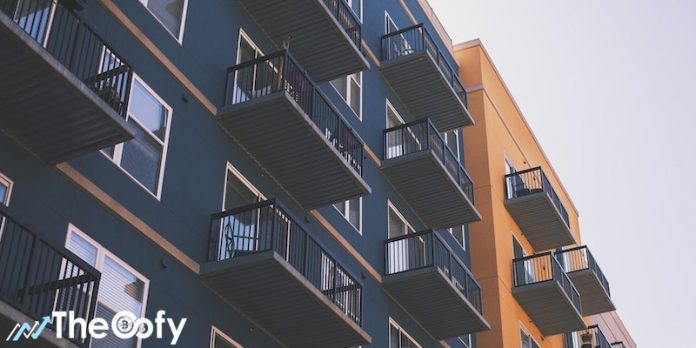One of the biggest obstacles for achieving this case scenario lies in the fact that the number of homes that could be categorized as affordable is not rising fast enough, however, many analysts believe that the decreased mortgage rates will bring more buyers to the market combined with lower prices for real estate.
According to Bloomberg, all signs point to a Housing Boom Ahead. Just as many millennials enter their home-buying years, the labor market is strong and interest rates are low.
Table of Contents
Recovery from recession
With the decline in interest rates over the past three months, the housing market now has three tailwinds all lined up for the first time in this cycle. The first is demographics. After declining for 12 years from 2004 through 2016, the homeownership rate has been increasing ever since, as the hangover from the housing bust wears off and the job market has improved to the point where workers are buying houses again. This is particularly true for younger households, who largely couldn’t or wouldn’t buy houses in the years after the housing bust. The biggest birth cohorts of the millennial generation were born between the late 1980s and early 1990s, and they’re now entering their 30s, prime home-buying years. Entry-level housing demand should be robust for years as these buyers start to shift from renting to owning.
The job market has improved
The second is the labor market. On just about any measure — from the unemployment rate, labor market sentiment, the percentage of prime-age people who are employed, and increasingly wage growth — the labor market is as good as it’s been in a generation. As mortgage underwriting standards have tightened following the mortgage fraud in the last cycle, this is particularly important. Given the high employment rate of recent years, a growing number of Americans have solid income history to qualify for a mortgage.
Interest rates dropped
And the third, thanks to the recent drop in interest rates, is affordability. The 10-year Treasury rate has fallen around 0.7 percent from its highs in October and November. Mortgage rates have followed suit. Last autumn there were fears that the rise in interest rates would take 30-year fixed-rate mortgages above 5 percent, but after the recent drop in rates we might be talking about mortgage rates below 4 percent pretty soon. On a $300,000 house with a 20 percent down payment, a one percentage point drop in mortgage rates would reduce a monthly payment by around $140 per month.
Housing Bubble: Will the Housing Market Crash Soon in 2019 or 2020?
The housing market has been experiencing drops in sales for the past three years already, slowly sinking into what appears to be a bubble waiting to burst.
Slow home price appreciation active for quite some time now, combined with lower mortgage rates are surely bringing the housing market out of the overheating market, while housing sales fell by 1,2%, touching the lowest performance in the last three years.
While this case could represent a marvelous opportunity for home buyers in the upcoming spring, analysts and real estate agents are convinced that few house listings and the rising rates for buying homes is killing the business.
Will the Housing Market Crash in the Upcoming Period of 2019 and 2020?
Due to the fact that mortgage rates dropped, it was expected to see a rise in the sales of real estate in January 2019, however, this was not the case.
Average prices for real estate have on the other hand increased in oppose to the prices active during the last year, while the chief economist at NAR, Lawrence Yun, insists that the sales of real estate recorded in January were some of the lowest when compared to the history of housing sales growth.
However, despite the turmoil that real estate agents are facing within the dropping sales, Yun is predicting that the sales should soon come out of its cyclical lows with moderating house prices, which should increase the affordability of real estate that way also boosting the sales in the upcoming period.
Yun is predicting that more buyers should be attracted to the market in the following months.
One of the biggest obstacles for achieving this case scenario lies in the fact that the number of homes that could be categorized as affordable is not rising fast enough, however, many analysts believe that the decreased mortgage rates will bring more buyers to the market combined with lower prices for real estate.
Mortgage rates slide to 13-month low, luring Americans back into the housing market
According to MarketWatch; So far this year, the 30-year fixed has averaged 4.40%, down from 4.54% in 2018.
Rates for home loans fell, with no bottom in sight as investors increasingly brace for slowing economic growth.
The 30-year fixed-rate mortgage averaged 4.28% in the March 21 week, mortgage guarantor Freddie Mac said Thursday. That was down 3 basis points during the week and a 13-month low for the popular product, which has managed a weekly gain only twice during 2019.
The 15-year adjustable-rate mortgage averaged 3.71%, down from 3.76%. The 5-year Treasury-indexed hybrid adjustable-rate mortgage averaged 3.84%, unchanged during the week.




